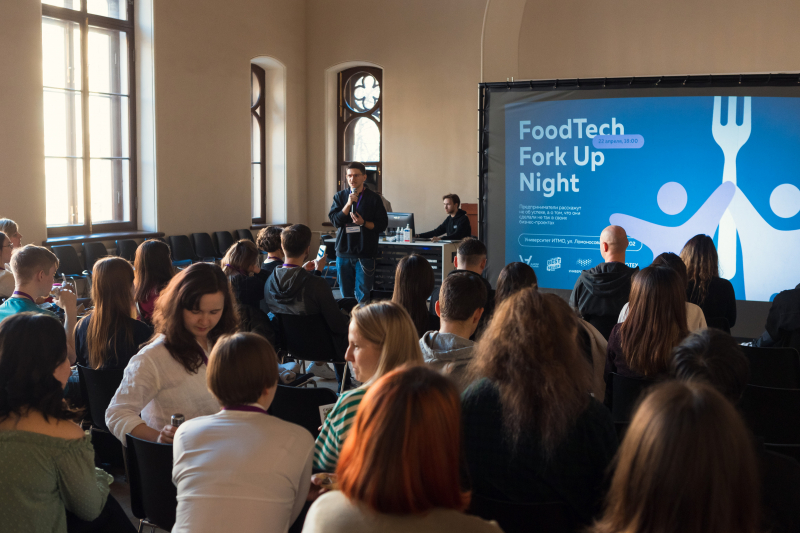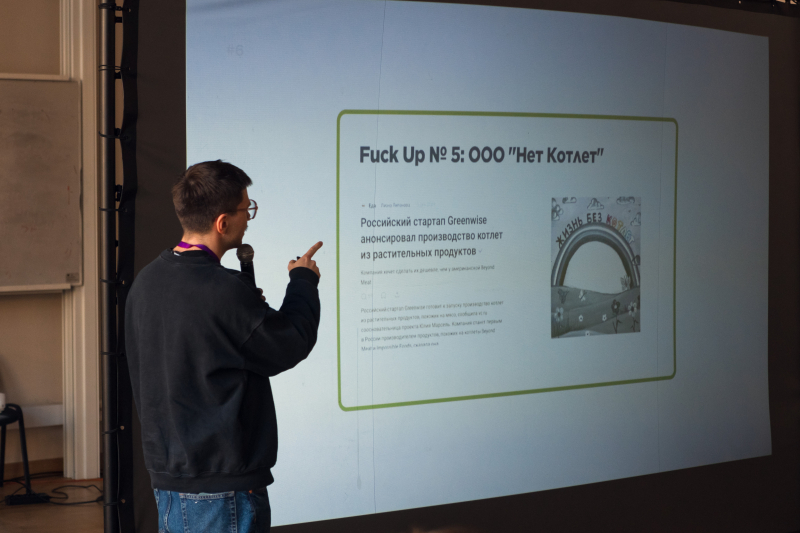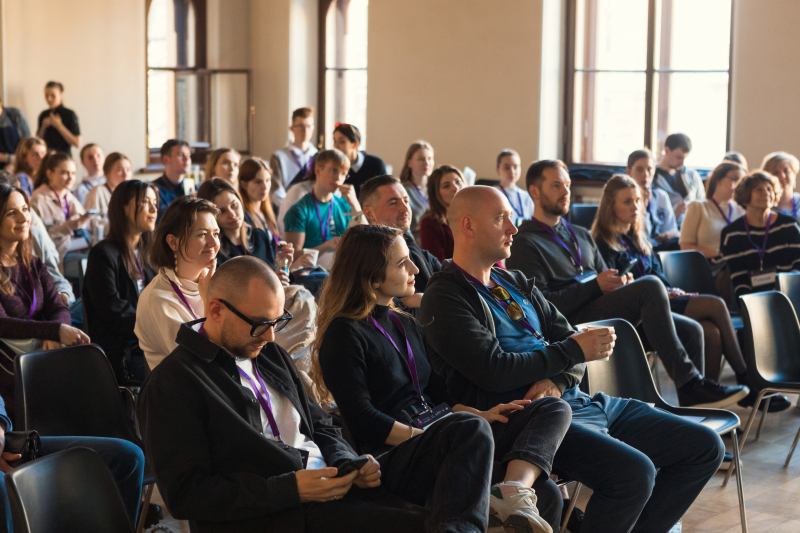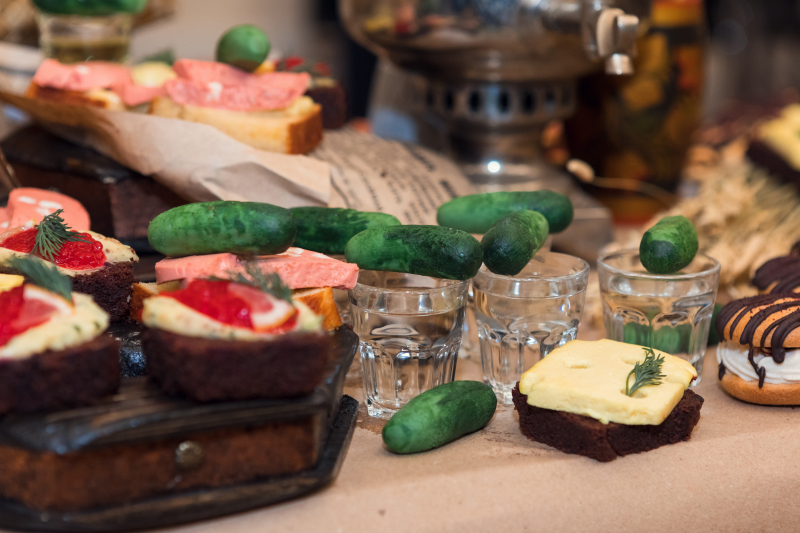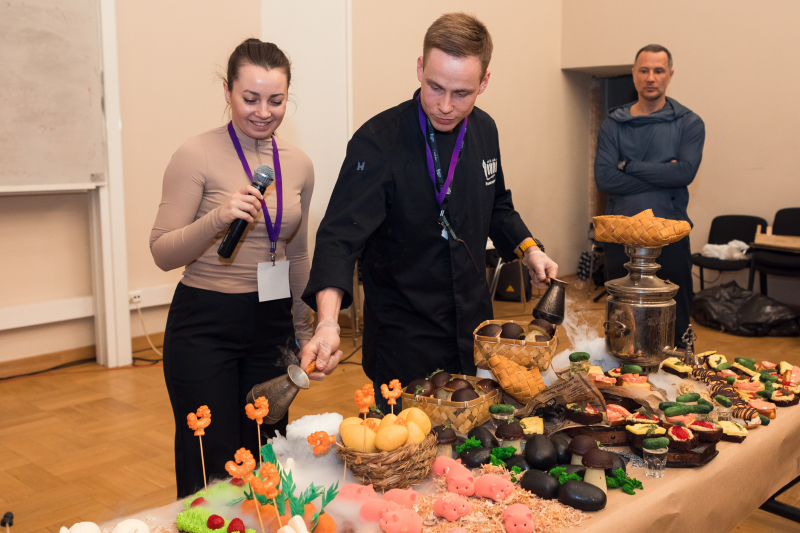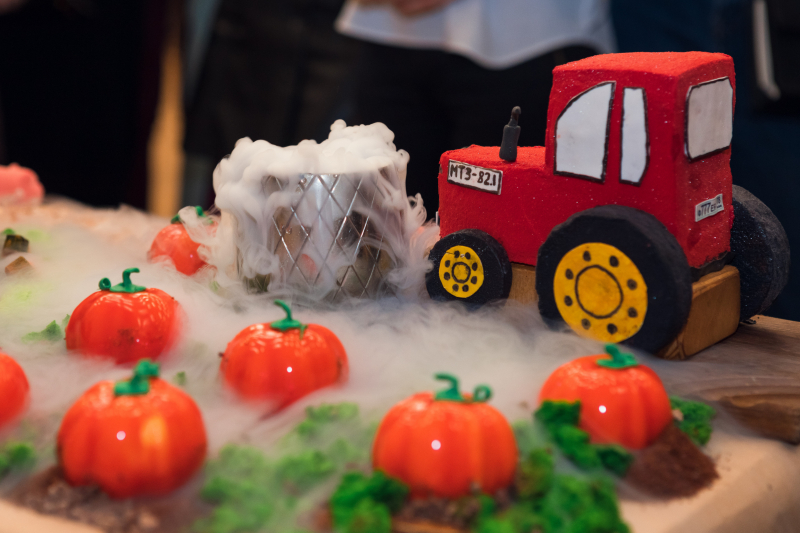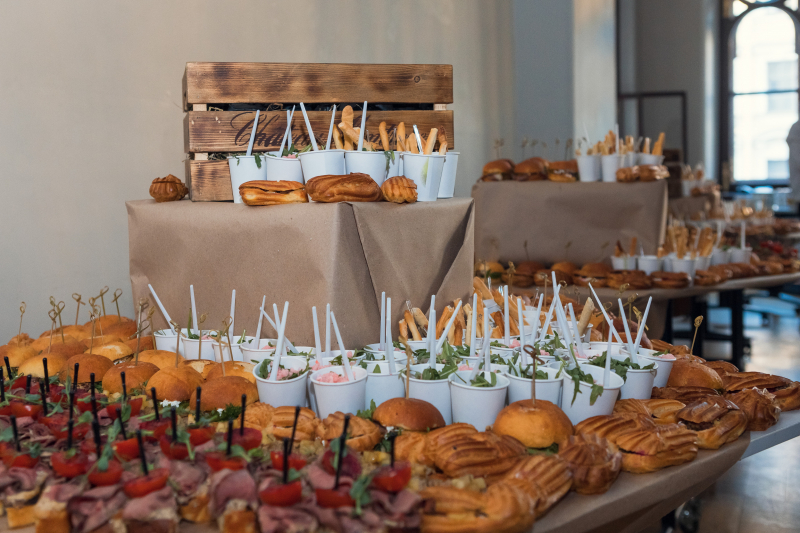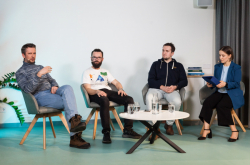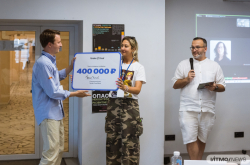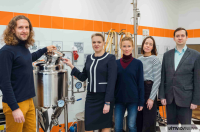At this fifth annual Fork up Night current and prospective students of ITMO’s Faculty of Biotechnologies had the chance to learn about ongoing projects in the field and scout for ideas for their own startups. In order to boost the spirits of young entrepreneurs, their more experienced counterparts talked about the challenges they had to overcome along the way.
“This meetup offers our students the opportunity to socialize with business representatives, so that they can secure partnerships and land jobs or internships. We are also hoping to inspire employees of specialized companies to become students at the faculty. Many startup founders and working professionals didn’t get their education in the specific field they are focusing on. This can be a hindrance when developing new products or even advancing their career, so it is common for such specialists to study for a Master’s degree alongside developing their business,” says Nadezhda Serova, a PR manager at the Faculty of Biotechnologies.
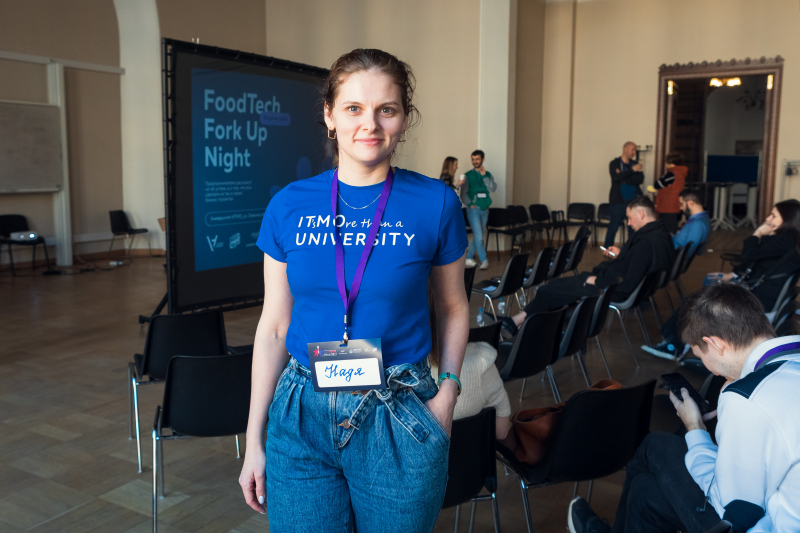
Nadezhda Serova. Photo by Dmirtry Grigoryev, ITMO.NEWS
Alternatives to traditional products
Among other topics in FoodTech, Fork up Night covers alternative food products. According to Artem Ponomarev, one of the event’s organizers, CEO of Greenwise and head of the Association of Alternative Food Products Producers, this field has been actively developing globally for about 15 years and for the last five years it has also been gaining popularity in Russia.
“These food products present an alternative to traditional foods that we are used to seeing at supermarkets, such as meat, dairy, and other raw materials of animal origin in various degrees of processing. Their alternatives can be plant-based meat, eggs, drinks, ice cream, baked goods, and other products. This field is closely connected with vegetarianism and its variations. We offer something of a mirror image to traditional food products,” explains Artem Ponomarev.
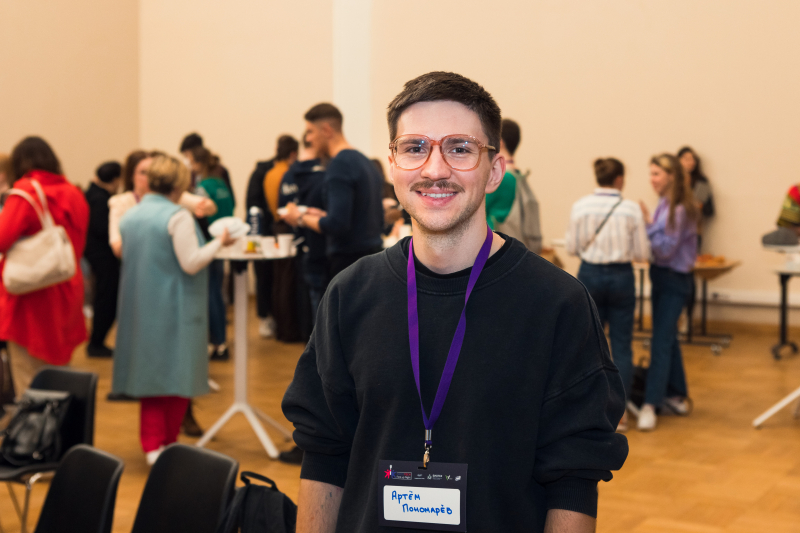
Artem Ponomarev. Photo by Dmirtry Grigoryev, ITMO.NEWS
Growing despite the challenges
Artem had to overcome a number of obstacles as he was developing Greenwise. At the beginning, conservative consumers didn’t understand what alternative products were and didn’t see them as real food. Later, the company decided to focus on plant-based snacks and rushed into hiring a designer, who turned out to be underqualified; the newly launched products failed to sell.
Another idea was to certify the products as halal foods and start selling them at stores. Having fulfilled all the requirements, Artem received the halal certificate for Greenwise, but the symbol with which the products were marked looked wrong. After four months of negotiations with grocery stores, Greenwise decided to change the symbol for new products, but they had to dispose of those already produced.
“My main takeaway from five years of being an entrepreneur is that with time, you start predicting where you will make a mistake in the future. It is a wonderful gift. What is more, you can also see where others can stumble, too, and you can count that in at the start,” shares Artem Ponomarev.
It took Igor Minkevich, the co-founder and chief financial officer at re-feel, a long time to succeed at developing natural matcha drinks to enjoy at home. First, the company ordered samples from Bali but they arrived flavorless. Then, Igor Minkevich started looking for a specialist who will be able to recreate the real taste of matcha from Bali. One of the offers he received was to add artificial ingredients without disclosing them on the label. This offer was turned down and as a result, the company entered the market with an original recipe developed on their own.
Having designed the packaging and launched the website, re-feel was ready for their first sales, but the labels were stuck at the printing office and the coconut milk – at the customs. Moreover, the packaging also needed to be changed, because it couldn’t be sold without the name of the product in Russian. As a big favor, the company was allowed to visit every shop they were to be sold at (about 400 locations) and switch the packaging.
“At re-feel we could rely on our experience from other projects and this really helped us get through every challenge. I agree with Artem’s words: in time, you start seeing where you have greater risks of failure and this helps you choose the best route. If you are at the stage where you don’t understand how to act, you need to find someone who does, who has been through it. For instance, before launching contract manufacturing at re-feel I reached out to 30 entrepreneurs to learn about their experiences and mistakes. Naturally, I had my share of slip ups, too, but fewer than I would’ve made otherwise,” says Igor Minkevich.
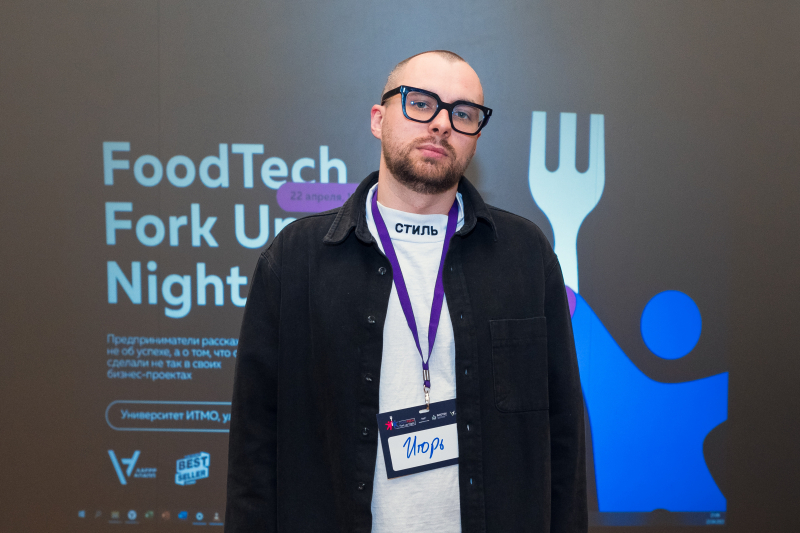
Igor Minkevich. Photo by Dmirtry Grigoryev, ITMO.NEWS
Failures help you reinvent your idea
In 2015, founder of the Zhivoi Product company Aida Gazalieva decided to produce plant milk using hemp, poppy, and sesame seeds. She had two ways to go: either produce it at a facility and store in Tetra Pak packages or cooperate with private manufacturers. The latter option would reduce the product’s longevity, while manufacturing at the company’s facility would cost more and plant milk would contain only 4% of seeds.
As a result, the Zhivoi Product team decided to find the golden mean and produce the most healthy and tasty plant milk with a month-long shelf life using purchased equipment. Aida Gazalieva found the required specialists, purchased installations, and conducted a series of experiments and tests, which allowed her to create such a product and start selling it. However, some of the packages had malfunctioning vacuum seal lids and the entire batch had to be returned.
“We started to think about what to do next. In a typical success story, we would have to work twice as hard, purchase new equipment, and complete our task. But instead we decided to abort the project, which wasn’t easy. Why did I share this particular story? Because sometimes it’s important to reevaluate your actions and contemplate on what you’re doing, why you’re doing it, and if it’s worth it. As a result of this experience, we acknowledged our mistake and moved on,” says Aida Gazalieva.
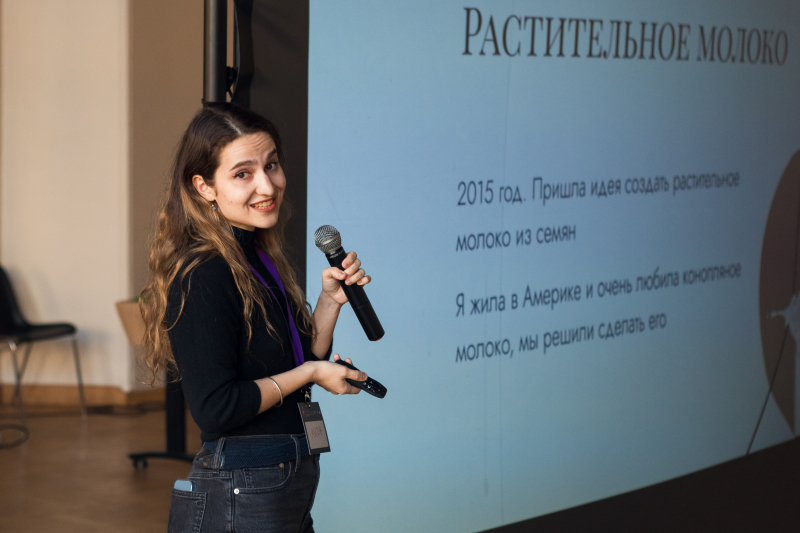
Aida Gazalieva at FoodTech Fork up Night at ITMO. Photo by Dmirtry Grigoryev, ITMO.NEWS
Fred Uzhitsky, the founder of Soymilk company, faced a similar situation. He started with the production of soy milk. It had great longevity in winter but in the summer heat, the milk would spoil in a week. Then, the entrepreneur decided to use it for yogurts but failed for the same reason. That’s when he decided to produce tofu instead – a product with a longer shelf life – and is still engaged in that.
“There are new challenges every day but you can’t just abandon your project, so you have to learn how to solve all kinds of tasks. I think no one’s safe from facing obstacles. There are always mistakes and setbacks but over time, you learn to handle them better,” says Fred Uzhitsky.
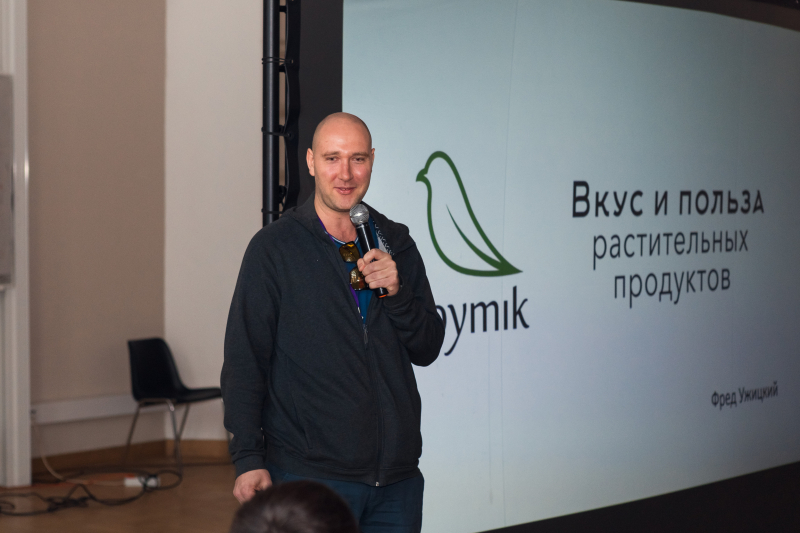
Fred Uzhitsky at FoodTech Fork up Night at ITMO. Photo by Dmirtry Grigoryev, ITMO.NEWS
Food for thought
Throughout the meetup, the participants could taste alternative products produced by the speakers, such as halva made from sunflower, hemp, and sesame seeds, plant-based jerky, and plant milk. At the same time, the guests could communicate with the speakers and share their impressions.
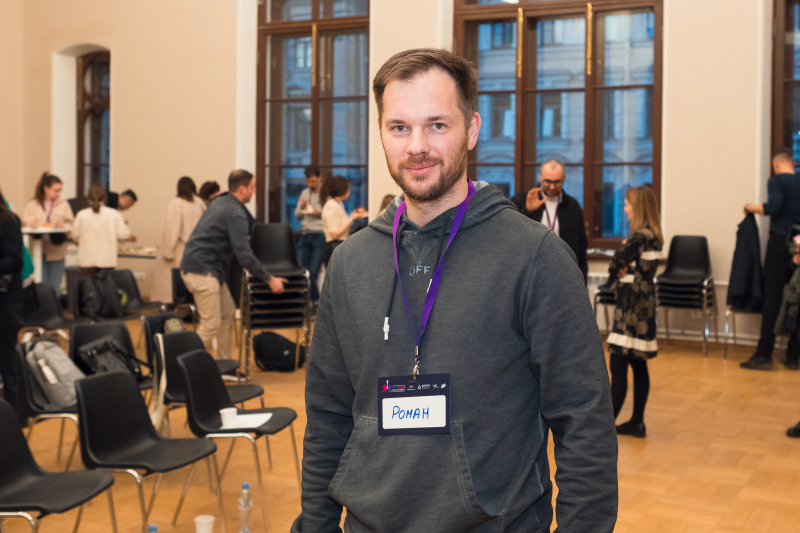
Roman Kamenev. Photo by Dmirtry Grigoryev, ITMO.NEWS
“Those one and a half hours flew by so fast. As a manufacturer, I enjoyed listening to opinion leaders and discussions of questions relevant to the market, entrepreneurs, and those who would like to launch a product. I’d highlight the presentation by Igor Minkevich, an executive partner of SETTERS Worldwide. He talked about promotion in the current conditions. Plus, the products he works on at the re-feel company are similar to the ones I’m engaged in concept-wise – for both of us, it’s key to be eco-friendly,” says Roman Kamenev, the founder of the Biomil company.
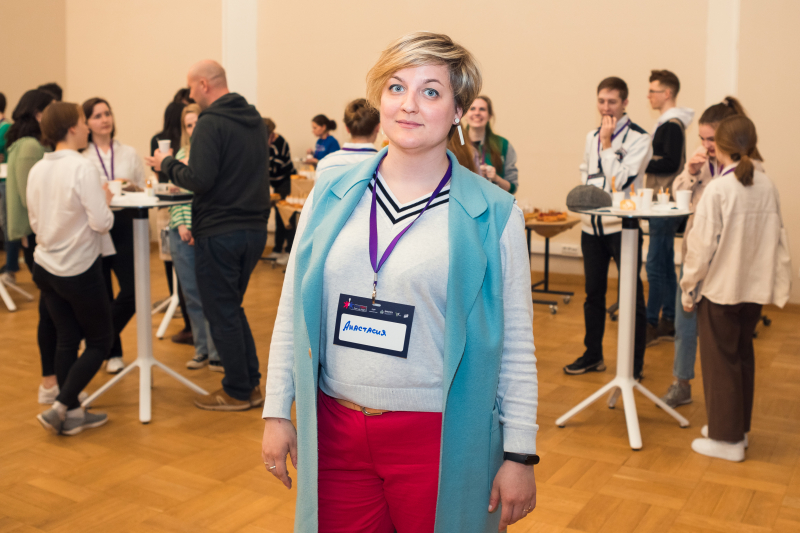
Anastasia Svistunova. Photo by Dmirtry Grigoryev, ITMO.NEWS
“When I found out that representatives of various companies will participate in the meetup, I was eager to hear the opinions of people who have made mistakes we could learn from. I especially loved Igor Minkevich’s and Fred Uzhitsky’s speeches. The way they managed to launch their companies and production from scratch is fantastic,” says Anastasia Svistunova, a first-year student at the FoodTech Master’s program.
ITMO University & food industry
Starting last year, ITMO’s Faculty of Biotechnologies jointly with Danone, Pepsico, Jacobs, and other major companies, launched a program for FoodTech specialists headed by Olesya Volokh, the head of the research group and nutriology at Danone EDPI CIS/TME.
“It was a brilliant idea to launch a Master’s program in food production. I’ve been working in R&D for 12 years and I can see that this field attracts more and more people. As of now, it’s hard to find a great technologist who would develop a product, a package specialist, or a manger who’s experienced in UX and CustDev (customer development), as well as knows how to communicate with consumers. Our program gives us an opportunity to do things differently,” says Olesya Volokh.
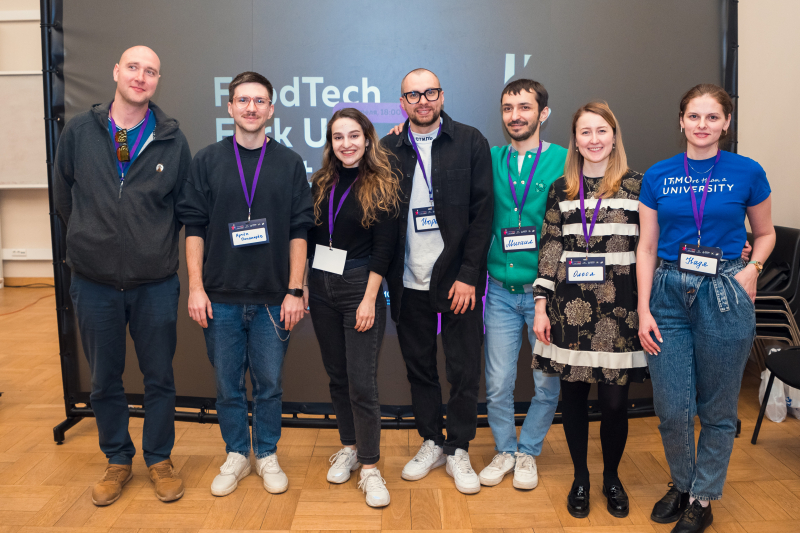
Organizers and speakers of the FoodTech Fork up Night at ITMO. Photo by Dmirtry Grigoryev, ITMO.NEWS
As part of the program’s development, 15 specializations were united and six of them were available for admission in 2021. By 2022, the curriculum was updated and the list of specializations changed.
“We’ve launched five specializations: Alternative Food Products, Functional and Specialized Foods, R&D in FoodTech, Responsible Production, and Innovative Approaches in FoodTech. We decided to add them because they correspond with the market trends and industry needs. Now, FoodTech is a representation of what’s happening on the market today,” says Mikhail Kurushkin, the dean of the Faculty of Biotechnologies.
